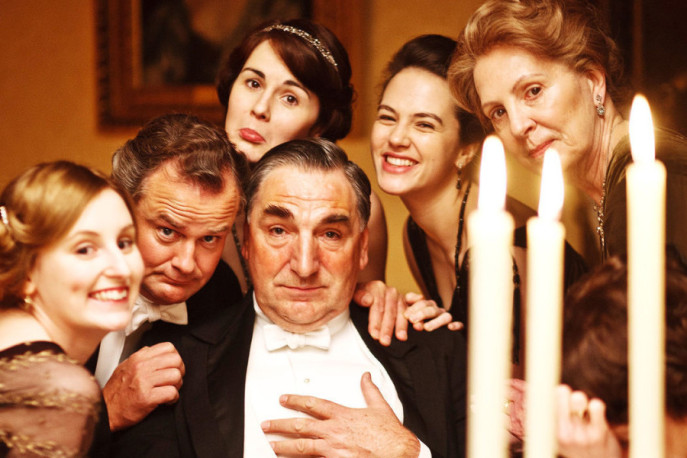
By Ellen C. Caldwell
for JSTOR Daily
The BBC’s hit series Downton Abbey aired its series finale in the United States last night. What has made this show so popular in America and around the world?
Carl Freedman argues that Great Britain has been particularly successful at its “cultural production” and distribution of “Englishness.” Freedman specifically explores the exportation of Edwardian “Englishness” as an ideology, using the BBC’s 1970s hit Upstairs, Downstairs and the 1985 film, A Room with a View as examples. Many dedicated Upstairs, Downstairs fans willargue with the success and originality of Downton Abbey, but both programs deal with the intricately entwined lives of the servants downstairs and the aristocrats upstairs. But because of their uncanny similarities, Freedman’s analysis of both the cultural production and exportation of “Englishness” in Upstairs, Downstairs may in part explain the massive popularity and ratings of Downton Abbey.
In his article “England as Ideology,” Freedman opens by explaining that there is a “certain Englishness” that British cultural forms embody, “or, more specifically, the production of an ideology of English self-representation both as distinctive postwar cultural form and as highly successful (and economically much needed) British export…”
Read the rest here at JSTOR Daily.
